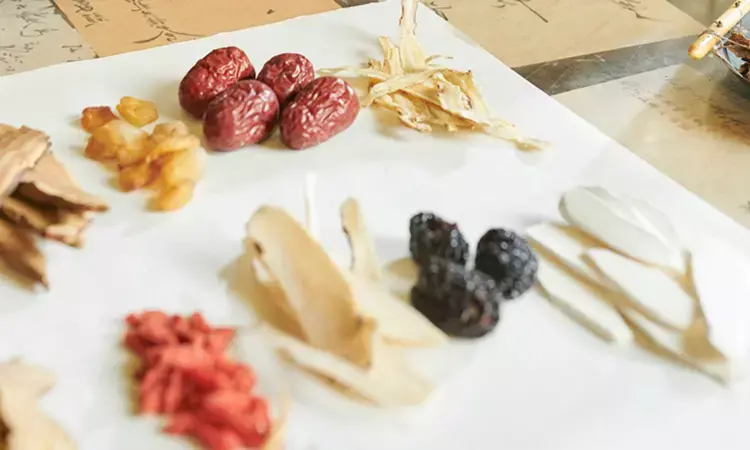- Home
- Medical news & Guidelines
- Anesthesiology
- Cardiology and CTVS
- Critical Care
- Dentistry
- Dermatology
- Diabetes and Endocrinology
- ENT
- Gastroenterology
- Medicine
- Nephrology
- Neurology
- Obstretics-Gynaecology
- Oncology
- Ophthalmology
- Orthopaedics
- Pediatrics-Neonatology
- Psychiatry
- Pulmonology
- Radiology
- Surgery
- Urology
- Laboratory Medicine
- Diet
- Nursing
- Paramedical
- Physiotherapy
- Health news
- Fact Check
- Bone Health Fact Check
- Brain Health Fact Check
- Cancer Related Fact Check
- Child Care Fact Check
- Dental and oral health fact check
- Diabetes and metabolic health fact check
- Diet and Nutrition Fact Check
- Eye and ENT Care Fact Check
- Fitness fact check
- Gut health fact check
- Heart health fact check
- Kidney health fact check
- Medical education fact check
- Men's health fact check
- Respiratory fact check
- Skin and hair care fact check
- Vaccine and Immunization fact check
- Women's health fact check
- AYUSH
- State News
- Andaman and Nicobar Islands
- Andhra Pradesh
- Arunachal Pradesh
- Assam
- Bihar
- Chandigarh
- Chattisgarh
- Dadra and Nagar Haveli
- Daman and Diu
- Delhi
- Goa
- Gujarat
- Haryana
- Himachal Pradesh
- Jammu & Kashmir
- Jharkhand
- Karnataka
- Kerala
- Ladakh
- Lakshadweep
- Madhya Pradesh
- Maharashtra
- Manipur
- Meghalaya
- Mizoram
- Nagaland
- Odisha
- Puducherry
- Punjab
- Rajasthan
- Sikkim
- Tamil Nadu
- Telangana
- Tripura
- Uttar Pradesh
- Uttrakhand
- West Bengal
- Medical Education
- Industry
Chinese herbal medicine tongxinluo beneficial for patients with STEMI: CTS-AMI study

China: The addition of traditional Chinese medicine tongxinluo to guideline-directed therapy improved outcomes in patients with STEMI (ST-segment elevation myocardial infarction), according to findings from the CTS-AMI study.
The study findings, presented at the Scientific Sessions 2022 of the American Heart Association (AHA) by Yuejin Yang, resulted in a 36% reduction of MACCE (major adverse cardiovascular and cerebrovascular events) at 30-days and one year. The herbal medicine also reduced severe STEMI complications and was safe to use without increasing adverse events.
Tongxinluo is a Chinese herbal medicine with ten or more potential active herbs and insects with endothelial-protective effects that have been used to prevent angina and stroke in China. Preclinical studies have also indicated that the compound reduces myocardial no-reflow and infarct size after reperfusion and protects microvasculature and endothelium to forestall reperfusion injury. Although it still needs testing to improve clinical outcomes in acute STEMI.
The CTS-AMI trial was conducted across 124 hospitals in mainland China and included 3797 patients with STEMI or new left bundle-branch block. They were randomly assigned within 24 hours of the onset of symptoms to 8 capsules of 2.08 g tongxinluo or placebo with dual antiplatelet therapy before thrombolysis, percutaneous coronary intervention (PCI), or medical management alone, followed by thrice daily four capsules in combo with guideline-directed treatment for 12 months.
The modified intention-to-treat cohort consisted of 1889 patients treated with tongxinluo and 1888 treated with placebo; primary PCI was conducted in 94.2% and 92.3%.
The study led to the following findings:
- There was a reduction in the relative risk (RR) of 30-day MACCE by 36% in the tongxinluo group versus the placebo group (3.39% vs 5.24%; RR, 0.64).
- The reduction in relative risk of cardiac death was by 30% (2.97% vs 4.24%; RR, 0.70) and MI reinfarction by 65% (0 vs nine events; RR, 0.35); they were the components of the primary endpoint.
- In the tongxinluo and control groups, strokes were comparable (4 vs 9; RR, 0.44), and emergent coronary revascularization was not seen in any patient at 30-days.
- The benefit of tongxinluo on the primary endpoint was congruous across subgroups.
- At 30 days, severe STEMI complications (11.79% vs 14.80%) and malignant arrhythmias (7.84% vs 10.20%) were lower in the tongxinluo group, whereas mechanical difficulties (10 vs 13) and cardiogenic shock (2.37% vs 3.31%) were similar.
- At one year, hazard ratios favoured tongxinluo for MACCE (0.64), cardiac death (0.73), MI reinfarction (0.26), and stroke (0.44).
- Concerning safety issues, 41 patients receiving tongxinluo and 52 receiving placebo had a severe adverse event (2.17% vs 2.75%).
- The researchers observed no significant between-group differences in hepatic injury, an allergic rash, digestive tract bleeding, prolonged prothrombin time, nausea, diarrhoea, and headache or dizziness, except for fewer renal injuries with tongxinluo (3.81% vs 5.30%).
"Tongxinluo remarkably improves both the 30-day and 1-year clinical outcomes of Chinese STEMI patients, particularly reducing cardiac death and severe complications; it did not lead to severe side effects such as major bleeding," Yuejin Yang, Fuwai Hospital, National Center for CV Disease, Beijing, China, concluded.
"These findings support using tongxinluo as an adjunct therapy for STEMI treatment, at least in China and other developing nations."
Reference:
Findings of "The impact of Chinese herbal medicine tongxinluo in patients with acute myocardial infarction: results from the CTS-AMI trial" were Presented at AHA 2022. November 6, 2022. Chicago, IL.
Dr Kamal Kant Kohli-MBBS, DTCD- a chest specialist with more than 30 years of practice and a flair for writing clinical articles, Dr Kamal Kant Kohli joined Medical Dialogues as a Chief Editor of Medical News. Besides writing articles, as an editor, he proofreads and verifies all the medical content published on Medical Dialogues including those coming from journals, studies,medical conferences,guidelines etc. Email: drkohli@medicaldialogues.in. Contact no. 011-43720751


